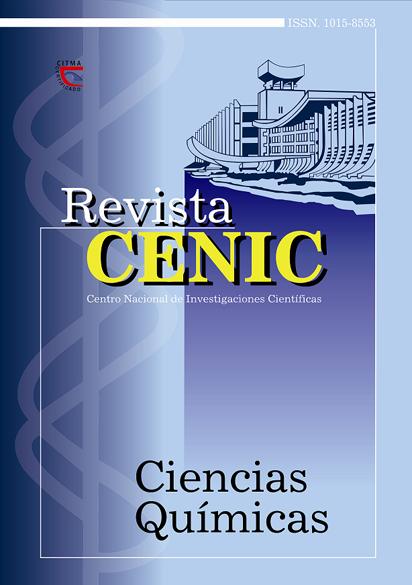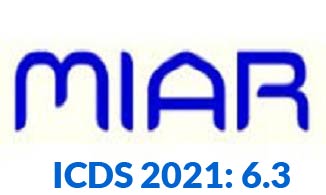Evaluación cinética de la descomposición térmica de diferentes tipos de biodiesel mediante termogravimetría
Resumen
El objetivo del presente trabajo fue la evaluación térmica y cinética del proceso de descomposición
térmica de tres tipos de biodiésel, así como de una muestra de diésel de referencia. Las muestras analizadas provienen
de biodiésel obtenido a partir de aceites de soya, higuereta y remolacha. Los parámetros cinéticos fueron
evaluados mediante termogravimetría y se obtuvieron estimados de orden de reacción, factor pre-exponencial de
Arrhenius y energía de activación. Para la estimación de estos se utilizaron modelos matemáticos basados en la
teoría de Vyazovkin. El criterio de selección de los parámetros cinéticos adecuados en este trabajo se basó en los
mejores coeficientes de correlación obtenidos, así como en el estudio del efecto de compensación cinética. Los
perfiles termogravimétricos de las muestras de biodiésel y diésel mostraron una descomposición térmica en una
sola etapa, con curvas de pérdida de masa y de su primera derivada muy similares para las muestras de biodiésel y
distintas al diésel en cuanto a las temperaturas de comienzo y fin de la reacción de descomposición térmica. La
energía de activación del diésel osciló entre 41 y 44 kJ · mol–1 y la de las muestras de biodiésel entre 52 y 67 kJ · mol–1.
La reacción de descomposición térmica del diésel es de primer orden y en el caso de las muestras de biodiésel es de
1,2. La estabilidad térmica del biodiésel es mayor que el diésel.

Descargas
Publicado
Cómo citar
Número
Sección
Licencia

Esta obra está bajo una licencia internacional Creative Commons Atribución-NoComercial-CompartirIgual 4.0.
Los autores que publican en esta revista están de acuerdo con los siguientes términos:
Los autores conservan los derechos de autor y garantizan a la revista el derecho de ser la primera publicación del trabajo al igual que licenciado bajo una Creative Commons Atribución-NoComercial-CompartirIgual 4.0 que permite a otros compartir el trabajo con un reconocimiento de la autoría del trabajo y la publicación inicial en esta revista.
Los autores pueden establecer por separado acuerdos adicionales para la distribución no exclusiva de la versión de la obra publicada en la revista (por ejemplo, situarlo en un repositorio institucional o publicarlo en un libro), con un reconocimiento de su publicación inicial en esta revista.
Se permite y se anima a los autores a difundir sus trabajos electrónicamente (por ejemplo, en repositorios institucionales o en su propio sitio web) antes y durante el proceso de envío, ya que puede dar lugar a intercambios productivos, así como a una citación más temprana y mayor de los trabajos publicados (Véase The Effect of Open Access) (en inglés).














